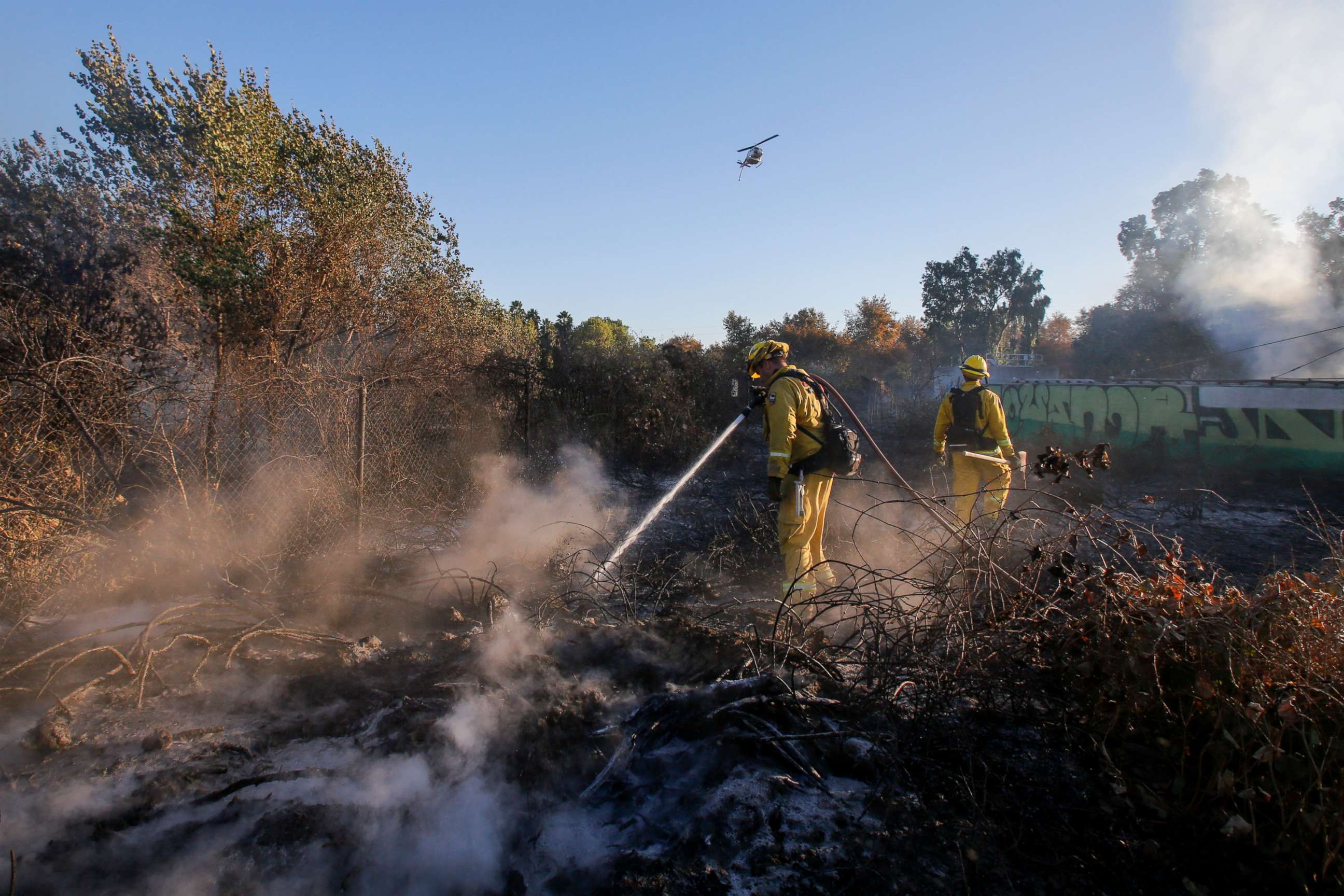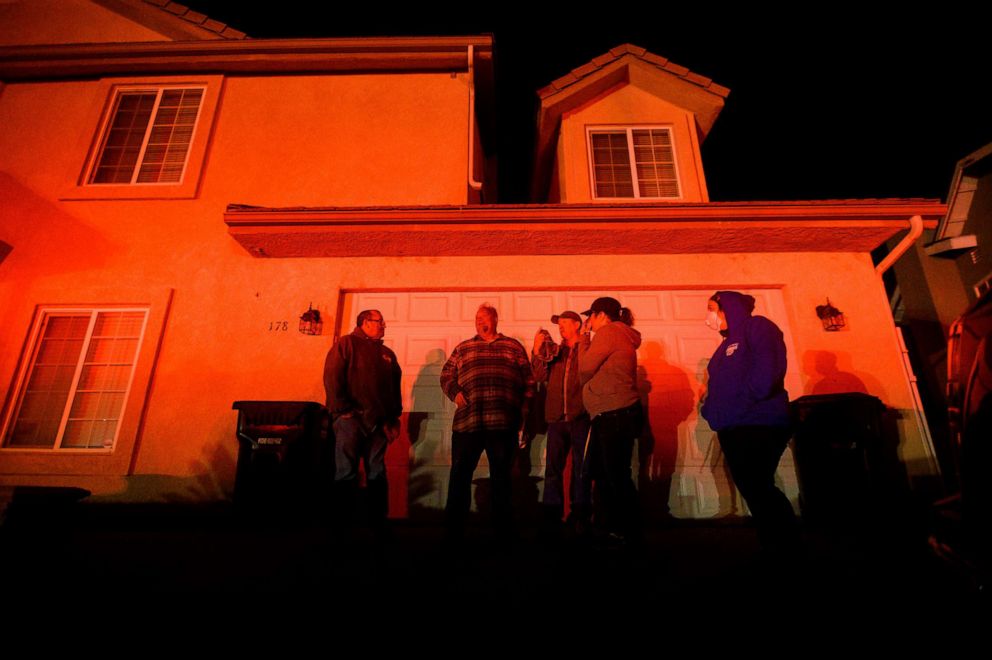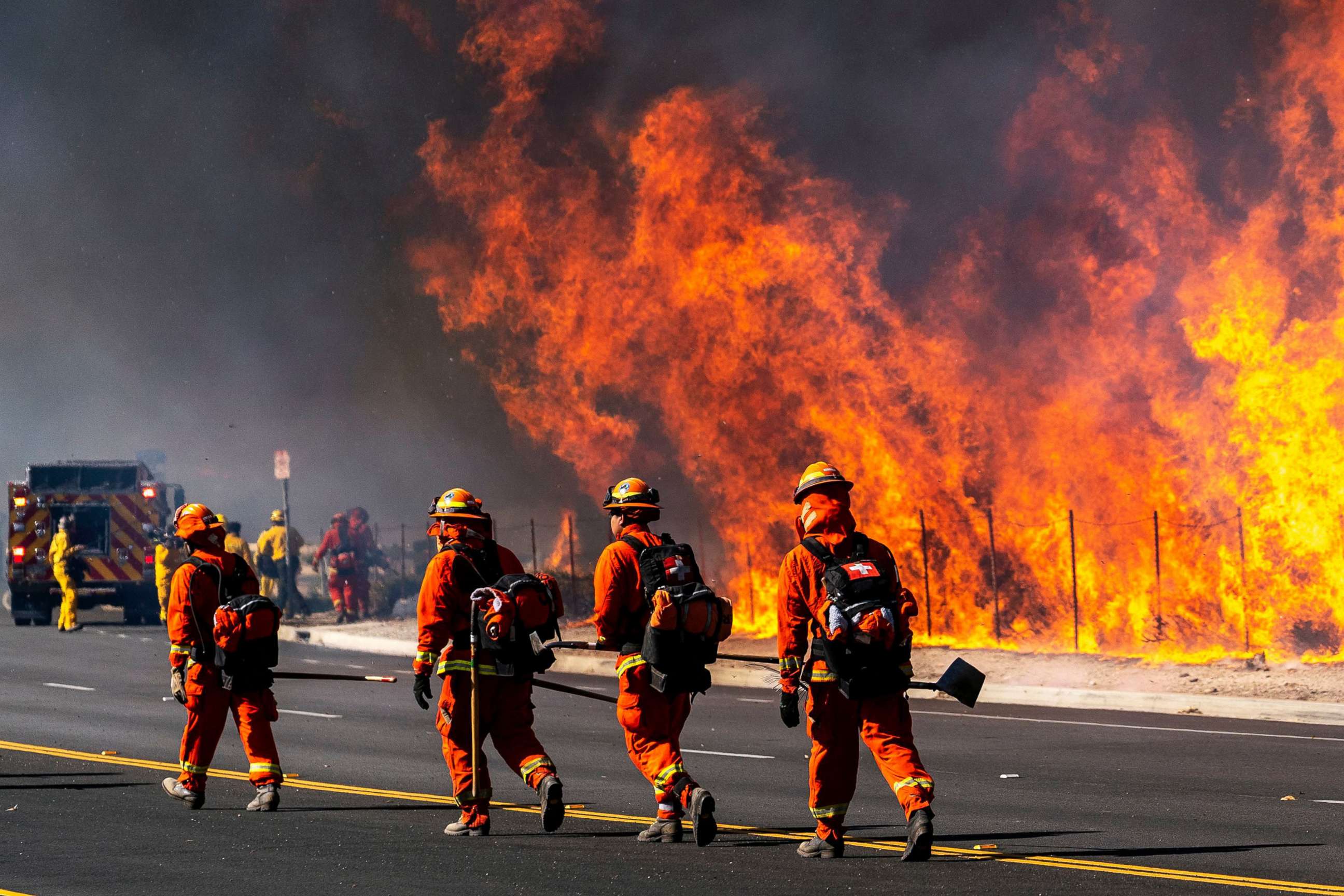Fires out West: Health tips for residents who are escaping the flames
Masks and goggles are essential protection, says ABC's medical corespondent.
The dangerous wildfires erupting across large portions of the Western U.S. are bringing major health risks to the residents.
The Dixie Fire near the Feather River Canyon in Northern California is now the second-largest fire in state history after it sparked last month. Whether you live in California, Oregon or Montana, here are some tips from doctors:
Dr. Zab Mosenifar, a lung specialist at Cedars-Sinai medical director of the Women's Guild Lung Institute, says those in immediate danger are the residents within 25 miles of a fire.
Small particles in the air can travel hundreds of miles, and depending on the winds, particles can float for up to two weeks after a fire has been extinguished, Mosenifar warned.


Those especially in danger are children, the elderly and people with chronic respiratory problems, Mosenifar said.
"Breathing in smoke, spot and particulate matter in high concentration and/or for prolonged periods of time can result in short or long term lung damage," said ABC News chief medical correspondent Dr. Jennifer Ashton.

"People who smoke, vape or have asthma are at higher risk for problems," Ashton said.
"I recommend that anyone in the area wear an N95 particulate mask if possible," she added.
Ashton urges residents with persistent coughing, shortness of breath, wheezing or chest tightness to seek medical attention and to wear goggles for eye protection.
"If your eyes are hurting or vision is impaired, seek medical attention immediately and do not rub your eyes as this could cause more damage," she said.
Mosenifar recommends that residents use an air filter in their home or set their air conditioner to recirculate the air.




